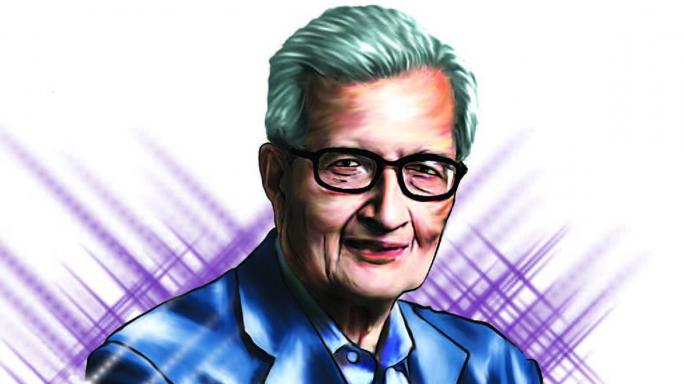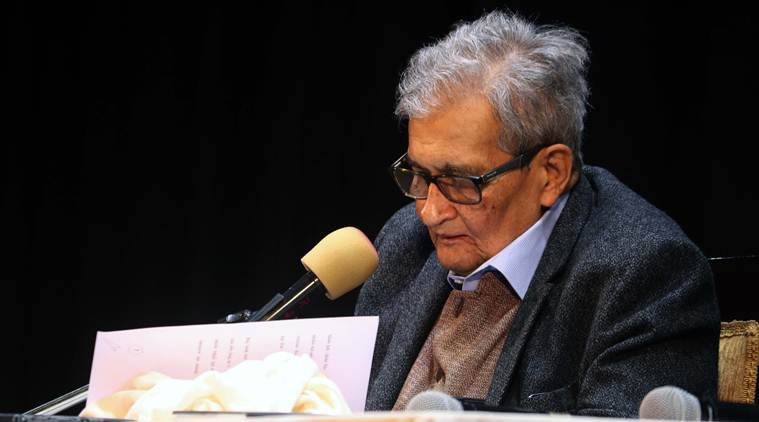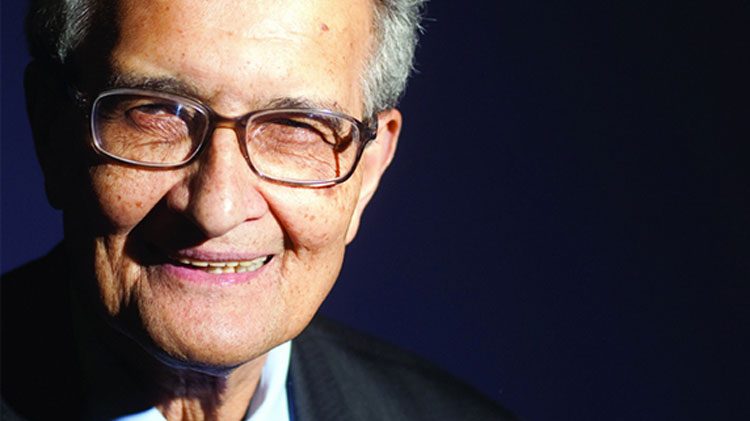
“Poverty is the deprivation of opportunity” was said so correctly by the man also known as the “Mother Teresa of Economics”; yes he is none other than the great legendary economist “Amartya Sen”.
What we all know is that he is a Nobel Laureate; he got the Nobel Prize for his work on Economics. But very few of us know deeply about his career and life.
Born in Shantiniketan, Bengal (then) in India on 3rd November 1933 to Amita and Ashutosh Sen, he was named Amartya by Gurudev Rabindranath Tagore which meant immortal. He had his formal education in St. Gregory’s School in Dhaka and then in Patha Bhavan, the primary and secondary wing of Shantiniketan. He was a graduate on Economics from the Presidency College, Calcutta in 1953. In that very year he joined the Trinity College in Cambridge earning another B.A. degree in Economic Sciences.
Sen was an appointed professor and HOD of Economics at the Jadavpur University in Calcutta at the age of only 23. He pursued PhD at Cambridge after 2 years. His PhD thesis “The Choice of Techniques” made him a visiting Professor at the Massachusetts Institute of Technology. He completed his magnum opus Collective Choice and Social Welfare in 1969 from the Delhi School of Economics in which he was even a professor from 1963 to 1971. At 1977 he taught at the University of Oxford, where initially he was an Economics Professor and Fellow of Nuffield College and finally in 1980 to 1988 a Drummond Professor of Political Economy and a Fellow of All Souls College, Oxford.

Amartya Sen became the Thomas W Lamont professor of Economics at Harvard in 1987. He was the first ever Asian Head of an Oxbridge college when appointed as the Master of Trinity College. He returned to Harvard on January 2004.
He was appointed the Chairman of Nalanda Mentor Group to build the framework of international cooperation and proposed structure of partnership that would help in governing the establishment Nalanda International University Project as an attempt to rejuvenate the ancient centre of higher learning that was present I India from 5th century to 1197. Sen was the first chancellor of the proposed Nalanda University.
Sen has researched on a wide range of subjects covering social choice theory, economic theory, ethics and political philosophy, welfare economics, theory of measurement, decision theory, development economics and public health to gender studies.
Sen’s works were translated onto 30 languages. Some of the notable publications are Choice of Techniques, Growth Economics, Collective Choice and Social Welfare, Development as Freedom, Poverty and Famines: An Essay on Entitlements and Deprivation, On Economic Inequality, The Argumentative Indian and The Idea of Justice.

Coming onto awards, Sen was felicitated with the Bharat Ratna, Adam Smith Prize, Commandeur de la Legion d’Honneur, Honorary Companion of Honour, Edinburgh Medal, Aztec Eagle and Eisenhower Medal apart from the 1998 Nobel Prize in Economic Sciences for his contributions to welfare economics and social choice theory and for his interest in the problems of society’s poorest members.
His brilliant works on famine, human development, welfare economics, the underlying mechanisms of poverty, gender inequality and political liberalism made him the Mother Teresa of Economics.
Sen was a US resident for around 50 years but he chose to retain only his Indian citizenship so that he could spend his winter holidays in his home Pratichi in Shantiniketan.
Sen’s interest in famine was due to his dreadful personal experience of the 1943 Bengal Famine which killed 3M people. He later concluded that the magnitude of loss was unnecessary on identifying panic buying, hoarding, and British military acquisition among factors behind the famine through his research.
In spite of being criticized by many for his political ideologies, Amartya Sen holds a warm place in every Indian’s heart specially the Bengalis and is idolized by billions.








Leave a Reply